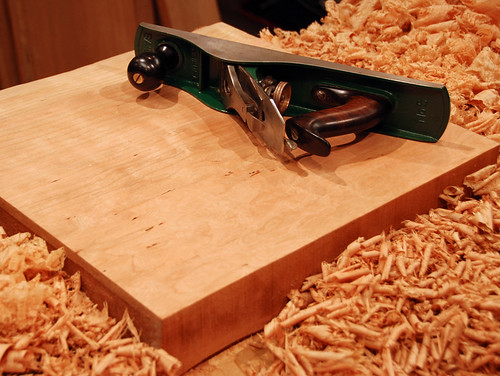Hello Everyone,
I am restoring a Stanley 4 1/2 that I picked up. My objective is to have this a well maintianed user vs. a pristine collectable. Two questions:
1. The Japaning on the body is about 80% intact. I am thinking of painting over than with some gloss black. Is that a good idea?
2. The handles have been sanded in preparation for refinishing. They are not down to bare wood but the previous gloss finish is gone. What should I use for finishing them? I can think of maybe BLO or a stain then satin but what kind? What kind of stain was used?
Sorry no pics yet. It on my to do list. It does look nice when it is all clean any shiney though.
Thanks,
Rick




 Reply With Quote
Reply With Quote




